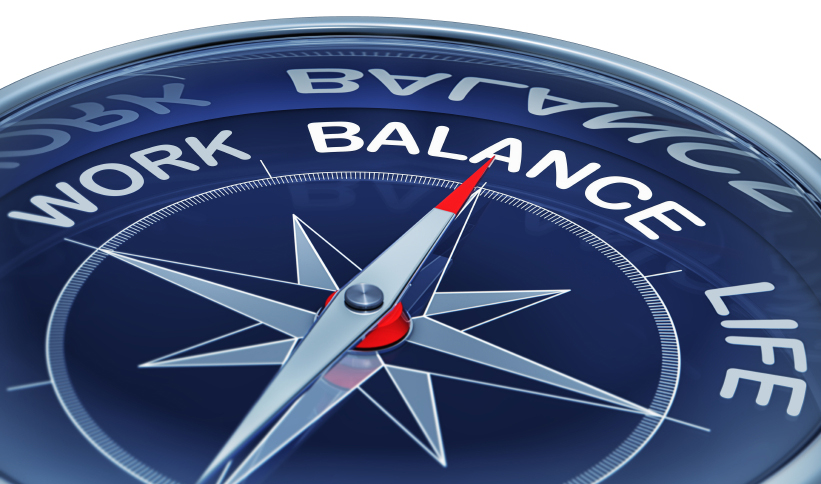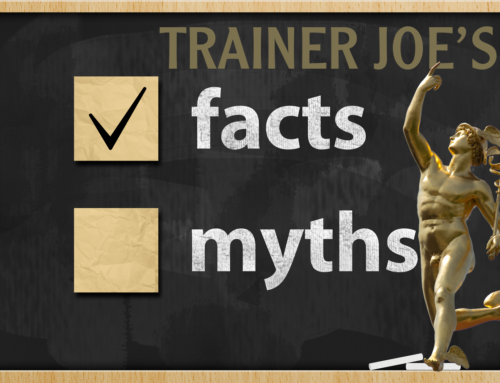Earlier this month, the National Association for people with Developmental Disabilities (NADD) was kind enough to invite me to participate in their international webinar series, which was directed at healthcare professionals as well as family caregivers throughout the US and Canada. I was tasked with providing strategies to prevent burnout through achieving a work/life balance using exercise, nutrition and self-care modalities.
The strategies that work for caregivers can be applied to top performing Sales Executives, 24/7/365 Entrepreneurs, stressed C-Suite Leaders, busy Moms, and harried Professionals. They will work for you because we are ALL cavemen underneath our khaki pants, Prada dresses and Brooks Brothers suites. You can dress us up, but we have the same primordial fight or flight response to stress as did our hairy ancestors. According to research from the Family Caregiver Alliance, unrelenting stress can play havoc with our minds and bodies, causing some serious health outcomes:
- Elevated Blood Pressure
- Cardiovascular Disease
- Compromised Immune System
- Chronic Fatigue and Insomnia
- Menstrual Irregularities
- Depression
- Self Medication with Food, Alcohol and Drugs
- Weight Gain
- Injuries on the Job or at Home
Below are the first five strategies to help you achieve the work/life balance needed to reduce daily stress:
- Exercise Your Body to Relax Your Mind: Cardiovascular training simulates “Flight,” while strength training simulates the “Fight.” Cardio, when done in your heart rate training range, bathes your brain in oxygenated blood and releases good hormones to offset the adrenaline and cortisol released during stressful times. Strength training, when done at the proper intensity, also releases “good” hormones and helps load your muscles with the increased glycogen stores needed to boost stamina and reduce fatigue. The Strategy: Begin a structured program of strength and cardio exercise designed to boost your stamina, and exercise your heart.
- Stay Fully Hydrated: Most Americans live in a constant state of mild dehydration. American College of Sports Medicine research indicates that even being dehydrated 1% can have a negative impact on our emotions, cognition as well as our bodies. Dehydration exacerbates stress. The Strategy: If you are not consuming about 64 ounces a day, gradually increase your fluid intake. Drink whatever you want…any non-alcoholic liquids will do.
- Get Up and Move: Sitting is the new smoking. If you sit for more than an hour at a time during your waking hours, research shows you have the same mortality and morbidity as someone who smokes a pack of cigarettes a day. The Strategy: Plan your day so that you can get up and walk around for five minutes or so each hour.
- Pamper Yourself: Whether your stress is caused by raising children, working for a harsh boss, achieving a quota, running a company, dreading a commute or dealing with an illness, the need to take a circuit breaking time-out is a common denominator. Small indulges as well as large go a long way to helping you recharge and tip the scales. Some of the small indulgences that are not budget busters include: purchasing new lipstick, walking on the beach, visiting an art gallery, buying a new magazine, enjoying a high tea, listening to new music and having a pedicure or massage. The Strategy: Identify and enjoy small indulgences with mindfulness and gratitude.
- Let Others Care for You: You do so much for others, now it’s time for you to change seats and be the copilot. Outsource and offload some of the chores you normally do, but don’t thoroughly enjoy. Mowing the lawn, cooking dinner, cleaning the house, power washing the deck, shopping for food, preparing the taxes and driving to the airport are some examples clients have shared with me. The Strategy: Identify tasks which can be done by others and contract for those resources. Use the time you have bought to enjoy what really gives you pleasure.
Next post…I’ll share the remaining five strategies, so don’t stress out. I’d love to hear what works for you. What strategies do you embrace to reduce stress and achieve a work/life balance?







Great info Joe,
I have been an avid exerciser my whole life and 6 months ago, I had surgery which took me out of the fitness studio. I’ve been procrastinating getting back into the swing of exercising, and recently noticed how I have to fight harder to stay on my game in my business and my home life. To stay in peak “mental” fitness is becoming a chore at times. I couldn’t figure it out but now, I think its because I haven’t been working out and getting my endorphins and blood pumping! thanks for the ‘duh’ moment. Back to the gym
Roe
Hi Roe,
Thanks for your kind words!
Similar to what Yogi Berra said, 90% of fitness is half mental. Please let me know if I can guide your steps or help you in any way.
All the best,
Joe
I picked up a soft tub (hot tub runs on on 110 current) we use it morning and night. I have increased my mountain hiking from 10 to 30 miles per week with regular usage.
Hi Mark,
I can’t think of any better combination than taking a nice mountain hike followed by a nice hot tub soak.
Where do you hike? This soft tub sounds nice. Is this something you set up yourself or did you need a professional installation? This would be a nice seasonal addition to my deck if I can instal and removed it by myself.
You found a great stress release that is also a good calorie burn and muscle conditioner…the best of all worlds. Keep up the good work!!!!!